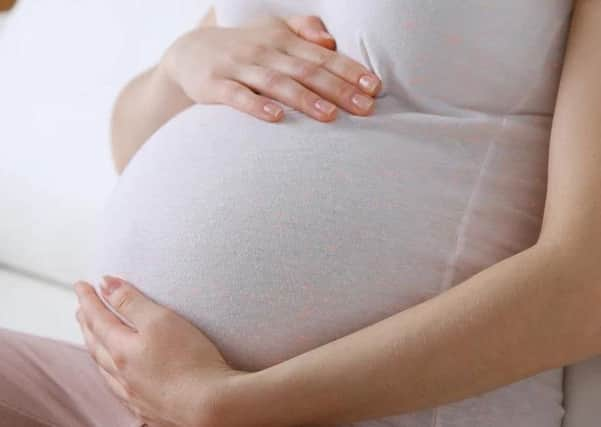Pregnant? Morning sickness is worse for mothers with girls


A woman pregnant with girls has worse symptoms because her baby’s gender affects her immunity, say scientists.
It has been an old wives’ tale for centuries that expectant mums who don’t get morning sickness are carrying a boy.
Advertisement
Hide AdAdvertisement
Hide AdNow a study of 80 women across the course of their pregnancy has added weight to the claim.
It showed those carrying female foetuses produced more chemicals called cytokines, which trigger inflammation.
Dr Amanda Mitchell said: “While women did not exhibit differences in blood cytokine levels based on foetal sex, we did find the immune cells of women carrying female foetuses produced more pro inflammatory cytokines when exposed to bacteria.
“This means women carrying female foetuses exhibited a heightened inflammatory response when their immune system was challenged, compared to women carrying male foetuses.”
Advertisement
Hide AdAdvertisement
Hide AdHer team found women exhibited different levels of the ‘immune markers’ based on foetal gender.
Analyses were conducted on levels of cytokines in the blood and immune cells exposed to bacteria in the lab.
Some studies suggest a baby’s sex could play a role in why some women report differences with morning sickness, cravings and other symptoms based on the sex of their baby.
The latest findings published in the journal Brain, Behaviour and Immunity shows the sex of a baby is associated with pregnant women’s immune responses.
Advertisement
Hide AdAdvertisement
Hide AdInflammation is a critical part of the immune response involved in wound healing and responses to viruses, bacteria and chronic illnesses.
But excessive inflammation is stressful to the body and can contribute to sickness related symptoms, such as achiness and fatigue.
The heightened inflammation observed among women with girls could play a role in why they experience worse symptoms of some medical conditions, including asthma, when carrying a female rather than a male foetus.
Dr Mitchell said: “This research helps women and their obstetricians recognise foetal sex is one factor that may impact how a woman’s body responds to everyday immune challenges and can lead to further research into how differences in immune function may affect how a women responds to different viruses, infections or chronic health conditions, such as asthma, including whether these responses affect the health of the foetus.”
Advertisement
Hide AdAdvertisement
Hide AdDr Mitchell said it is possible the hormones in the placenta affect maternal inflammation levels.
She added: “It is important to think about supporting healthy immune function, which does not necessarily mean boosting it - it is problematic to have too little or too great of an immune response.
“That being said, research has shown exercise supports healthy immune functioning as does eating some foods, like leafy greens, and relaxing with activities like meditation.
“Of course, it is always important to check with your healthcare provider before making any changes to your routine or diet.”
Advertisement
Hide AdAdvertisement
Hide AdIt is supposed to be one of the happiest times of a woman’s life but severe morning sickness, hyperemesis gravidarum (HG), affects about one in 100 expectant mothers, causing excessive nausea and vomiting and leaving them feeling extremely unwell.
The Duchess of Cambridge has suffered badly during both her pregnancies, requiring medical treatment when she was expecting George and, then again, with Charlotte.
One in three pregnancies with morning sickness result in miscarriage. Treatment typically includes an injection of the drug heparin to protect against blood clots triggered by dehydration, as well as supplementation of vitamin B, one of the nutrients most depleted by the condition.